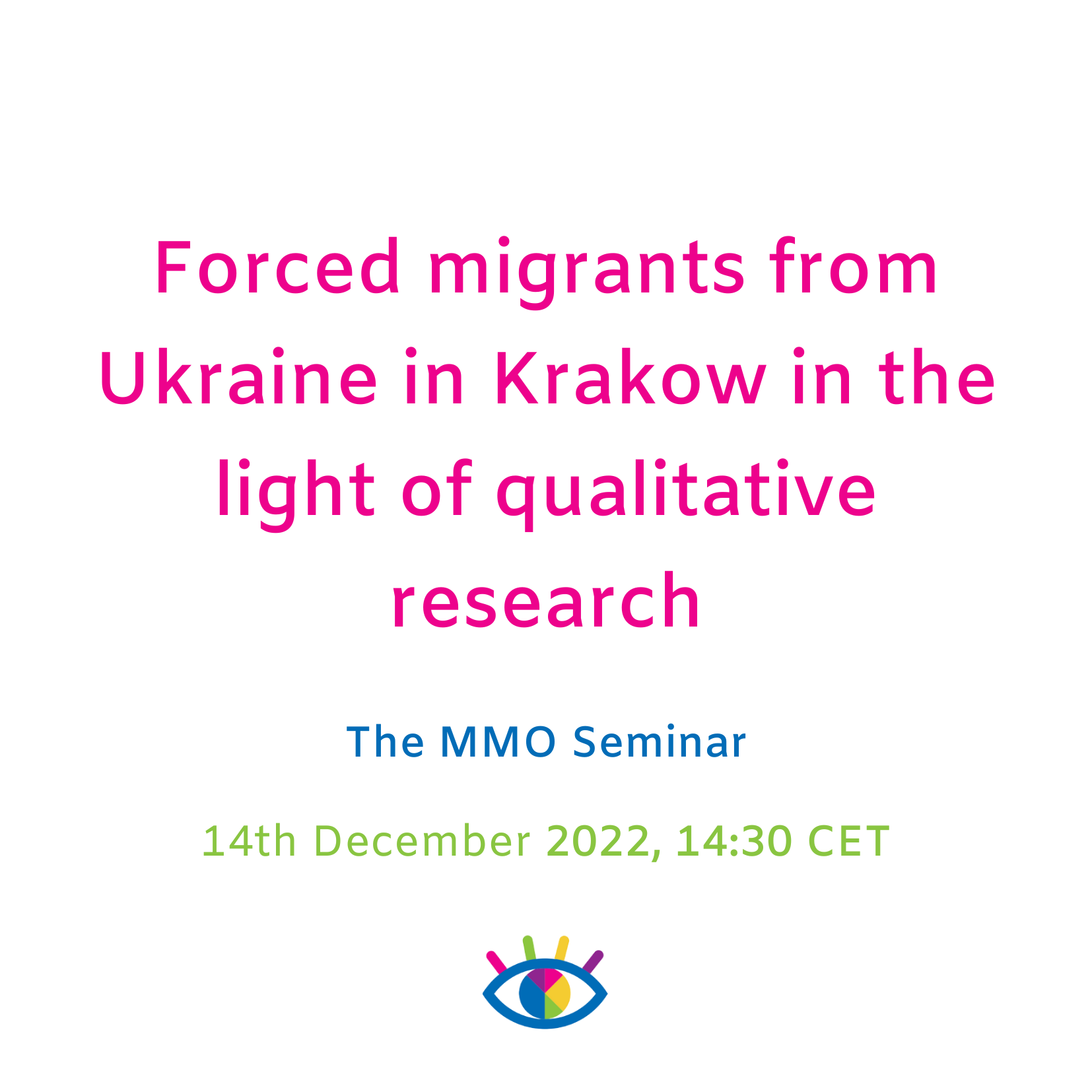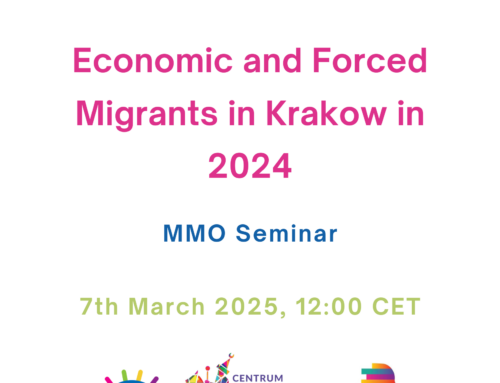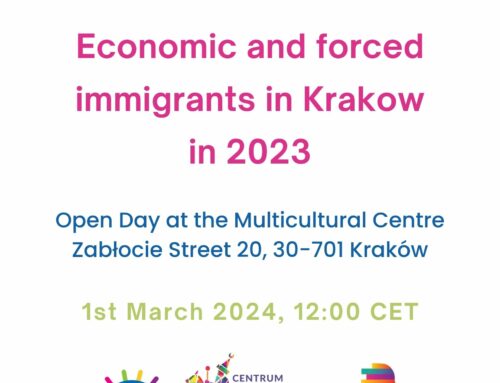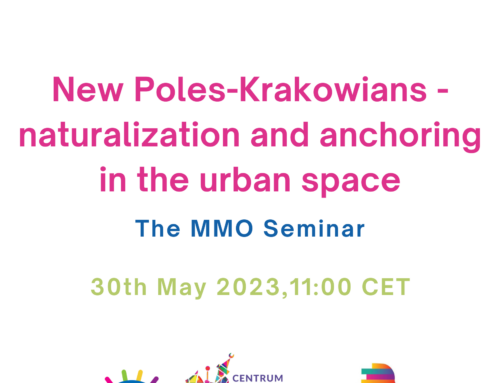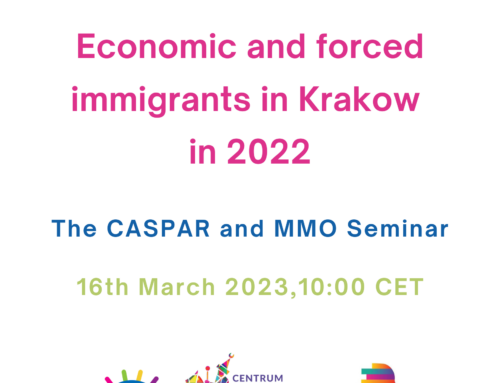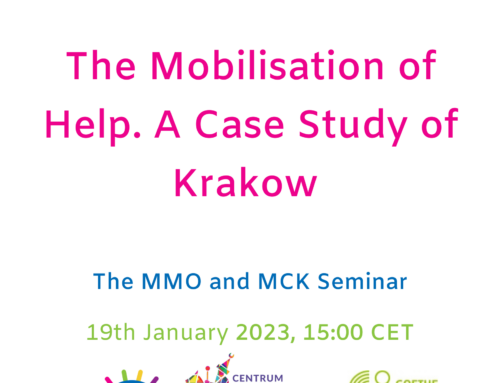We cordially invite you to participate in the next seminar of the Observatory of Multiculturalism and Migration. The latest report “Forced migrants from Ukraine in Krakow in the light of qualitative research” will be discussed by its authors – Patrycja Trzeszczyńska, Svitlana Luchik-Musiyezdova and Joanna Dymanus.
The seminar will take place in the building of the Cracow University of Economics, ul. Sienkiewicza 4 (audio room in the hall of the building), as part of the inauguration of the activity of the Krakow Integration Center (KCI). The event will also be broadcast live on the FB profile of Multiculturalism and Migration Observatory (https://www.facebook.com/profile.php?id=100069416349975).
The report draws attention to the involvement of migrants from Ukraine in helping refugees from this country arriving in Krakow. In addition, it presents the situation of refugees and forced migrants and the most important problems of their everyday life in the city. By giving the floor to people organizing aid and beneficiaries of this aid, the activities of Ukrainian migrant organizations and the Ukrainian community were followed, as well as the point of view of people who arrived in Krakow after February 24, 2022.
The report opens with a section devoted to the research methodology and key concepts. Then it shows the dynamics of the arrival of forced migrants and refugees to Krakow based on available statistics. The rest of the report consists of three main empirical chapters. The first of them is devoted to the help of Ukrainian organizations and the Ukrainian community for people fleeing Ukraine from the war. It presents the point of view of activists and coordinators of aid activities, as well as strategies for channeling and institutionalizing these activities, related to the adopted solutions and the division of specializations within individual organizations. Then, grassroots initiatives of the Ukrainian community in social media were analyzed. In this part of the report, the report draws attention to the role of migration networks in the process of adaptation of newly arrived Ukrainians in Krakow. The last empirical part concerns the challenges and problems faced by new residents who fled the war in the city. This chapter is organized by key topics such as housing, the labor market, education and childcare, medical care, family situation and plans for the future. This part also shows how migrants and forced migrants evaluate the assistance provided by Ukrainian communities and organizations, as well as grassroots initiatives, municipal institutions and Krakow non-governmental organizations. We will also show how they perceive Krakow and how they see their presence in it. The last chapter of the report presents the conclusions and recommendations resulting from the research.

